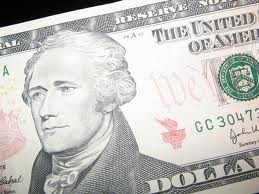U.S. bond yields have risen this week partly as euphoria over the Fed's likely asset purchase program is being replaced by doubts over the size of such a move.
"A model player's buying is pushing up the euro in thin trade. But given that U.S. bond yields have risen, the dollar will go in the same direction in the near term," said a trader at a Japanese brokerage.
The dollar's fate has had a close correlation with U.S. yields and their gap with rates on other currencies, as increases in U.S. yields -- other things being equal -- tend to help the greenback by making dollar investments more attractive.
With the gap between Japan and U.S. two-year yields near a three-week high and that for 10-year yields at a 2- month high, dollar/yen could have further room to rebound, some traders said.
Dollar/yen dipped 0.2 percent on the day to 81.62 yen, but it was still more than a full yen above Monday's 15-year low of 80.41 yen.
It faces strong resistance at 82 yen, which has blocked its advance a few times in recent weeks. Its 21-day moving average was also at 82 yen on Thursday.
Except for a short period after Japan intervened in currency markets on September 15, the dollar has been mostly stuck below the 21-day average line since its decline in June, and a rise above 82 yen could ignite more buybacks in the dollar.
But market players also note that Japanese exporters, a growing number of which have recently been lowering their target levels for selling the dollar, are likely to take advantage of any rebound in the U.S. currency.
"There will be sizable dollar offers from Japanese exporters at 82 yen and 82.50 yen at the end of month. I expect the dollar's rebound to be capped around 82.50 yen at best," said Daisuke Karakama, market economist at Mizuho Corporate Bank.
The Bank of Japan is holding a one-day policy meeting on Thursday.
Although it may unveil the details of its 5 trillion yen ($61 billion) asset purchase scheme, it is unlikely to garner much attention, market players said.
"This is peanuts compared to the Fed's $2 trillion balance sheet," said Karakama.
The euro fetched $1.3811, up 0.3 percent on the day but still down about 270 pips from Monday's high of $1.4080.
It may have support at $1.3724, its daily ichimoku kijun line. Another support level is its October 20 low of $1.3697.
(source:reuters.com)


No comments:
Post a Comment